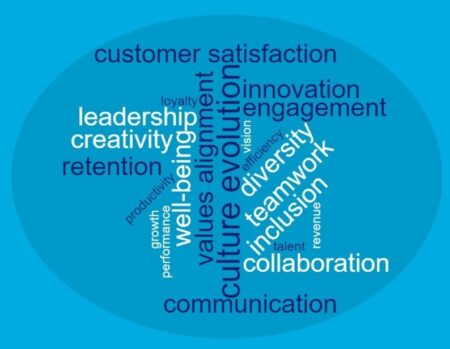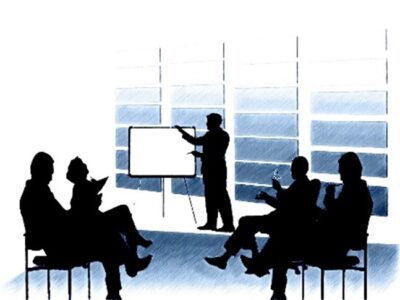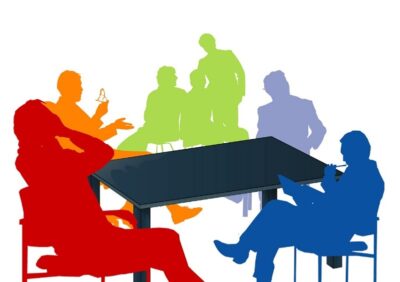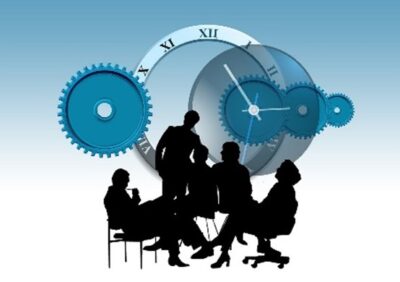Culture Evolution

The Appleton Greene Corporate Training Program (CTP) for Culture Evolution is provided by Mr. Bonnes (B.Sc.) Certified Learning Provider (CLP). Program Specifications: Monthly cost USD$2,500.00; Monthly Workshops 6 hours; Monthly Support 4 hours; Program Duration 12 months; Program orders subject to ongoing availability.

Personal Profile
Mr. Bonnes (B.Sc.) is a highly accomplished business professional with over 25 years of expertise in Project Management, Sales, Marketing, Leadership, and Learning & Development (L&D). With 18 years of hands-on experience in the business world, he possesses unparalleled clarity on what truly adds value in terms of people and organizational development efforts and investments.
As a Change Management and Culture Development Expert, Mr. Bonnes has an impressive track record of guiding leaders and their teams through global change workshops while reinforcing and nurturing the enterprise’s culture. His ability to drive disciplined action during periods of transformation is widely recognized.
Furthermore, Mr. Bonnes is a certified Executive Coach, specializing in coaching CEOs and senior executives. He has successfully worked with global businesses across diverse country, cultural, and language divides, assisting teams and their leaders in achieving personal and professional growth.
Mr. Bonnes’ expertise extends to being an experienced and influential Facilitator, Presenter, and Trainer, with a genuine passion for people development. In his previous corporate role as Vice President and Head of Global Training and Learning at the Hilti Corporation, he led a team with global responsibility for world-class Leadership, Talent Development, Sales, and Marketing Programs. Additionally, he held headquarters responsibility for “soft” skills training and development.
Having collaborated with businessmen and women in over 30 different countries throughout his career, Mr. Bonnes possesses a truly global perspective and an exceptional sensitivity and appreciation for individual cultures. This exposure has shaped his ability to navigate diverse business environments with ease.
In summary, Mr. Bonnes is a highly accomplished professional with a wealth of experience in various business domains. His expertise in Change Management, Culture Development, Executive Coaching, and People Development has made him a sought-after leader in the industry. With his global perspective and cultural sensitivity, Mr. Bonnes brings a unique and valuable perspective to every endeavor he undertakes.
To request further information about Mr. Bonnes (B.Sc.) through Appleton Greene, please Click Here.
(CLP) Programs
Appleton Greene corporate training programs are all process-driven. They are used as vehicles to implement tangible business processes within clients’ organizations, together with training, support and facilitation during the use of these processes. Corporate training programs are therefore implemented over a sustainable period of time, that is to say, between 1 year (incorporating 12 monthly workshops), and 4 years (incorporating 48 monthly workshops). Your program information guide will specify how long each program takes to complete. Each monthly workshop takes 6 hours to implement and can be undertaken either on the client’s premises, an Appleton Greene serviced office, or online via the internet. This enables clients to implement each part of their business process, before moving onto the next stage of the program and enables employees to plan their study time around their current work commitments. The result is far greater program benefit, over a more sustainable period of time and a significantly improved return on investment.
Appleton Greene uses standard and bespoke corporate training programs as vessels to transfer business process improvement knowledge into the heart of our clients’ organizations. Each individual program focuses upon the implementation of a specific business process, which enables clients to easily quantify their return on investment. There are hundreds of established Appleton Greene corporate training products now available to clients within customer services, e-business, finance, globalization, human resources, information technology, legal, management, marketing and production. It does not matter whether a client’s employees are located within one office, or an unlimited number of international offices, we can still bring them together to learn and implement specific business processes collectively. Our approach to global localization enables us to provide clients with a truly international service with that all important personal touch. Appleton Greene corporate training programs can be provided virtually or locally and they are all unique in that they individually focus upon a specific business function. All (CLP) programs are implemented over a sustainable period of time, usually between 1-4 years, incorporating 12-48 monthly workshops and professional support is consistently provided during this time by qualified learning providers and where appropriate, by Accredited Consultants.
Executive summary
Culture Evolution
History
In the 1950s, company culture was largely characterized by a hierarchical structure and a top-down management style. Organizations were often centralized, with decision-making power concentrated at the top levels of management. Employees were expected to follow strict rules and procedures, and there was a clear division between management and workers. Loyalty and conformity were highly valued, and employees were expected to stay with the company for long periods of time.
As the 1960s and 1970s rolled in, a shift began to occur in company culture. The rise of the counterculture movement and the civil rights movement influenced the workplace, leading to a greater emphasis on individualism and diversity. Companies started to recognize the importance of employee satisfaction and began to offer more benefits and perks. The concept of work-life balance started to gain traction, and employees were encouraged to express their opinions and contribute to decision-making processes.
In the 1980s and 1990s, the corporate culture became more competitive and focused on achieving results. The rise of globalization and technological advancements led to increased competition, and companies started to prioritize efficiency and productivity. This era saw the emergence of performance-based cultures, where employees were rewarded based on their individual achievements. The concept of teamwork also gained prominence, with companies encouraging collaboration and cross-functional communication.
In the 2000s and beyond, company culture has continued to evolve. With the advent of the internet and social media, organizations have become more transparent and open. The emphasis on diversity and inclusion has grown, with companies recognizing the value of different perspectives and experiences. Flexibility and remote work options have become more common, allowing employees to have a better work-life balance. Additionally, there has been a greater focus on corporate social responsibility, with companies aligning their values with social and environmental causes.

Overall, company culture has shifted from a rigid and hierarchical structure to a more flexible and inclusive approach, with a greater emphasis on employee satisfaction, collaboration, and social responsibility.

Many companies refer to their culture as “how we get things done around here.” Company or corporate culture encompasses the shared values, beliefs, behaviors, and practices that shape an organization’s identity. Over the years, the importance of organizational culture to business success, brand, and longevity has become increasingly evident.
Why is Company Culture Important?
A strong and healthy organizational culture is vital for businesses in today’s competitive landscape. It is crucial for several reasons. Firstly, it sets the tone for how employees interact with each other and with customers, shaping the overall work environment. A positive and inclusive culture fosters teamwork, collaboration, and innovation, leading to increased productivity and employee satisfaction. It also helps attract and retain top talent, as individuals are drawn to organizations with a strong culture that aligns with their values.
During good times, a strong company culture can propel an organization to even greater success. It creates a sense of purpose and shared values among employees, driving them to work towards common goals. It promotes a positive and supportive work environment, boosting morale and motivation. This, in turn, leads to higher levels of employee engagement and loyalty, resulting in increased productivity and profitability.
During challenging times, such as the 2008 financial crisis or the Covid-19 pandemic, company culture becomes even more critical. A strong culture provides a sense of stability and resilience, helping employees navigate uncertainty and adversity. It fosters open communication and transparency, allowing for quick adaptation and decision-making. A supportive culture also promotes employee well-being, ensuring that individuals feel valued and supported during difficult times. This can lead to increased employee loyalty and commitment, as well as improved teamwork and problem-solving abilities.
What kind of Wind is blowing through your Organization?
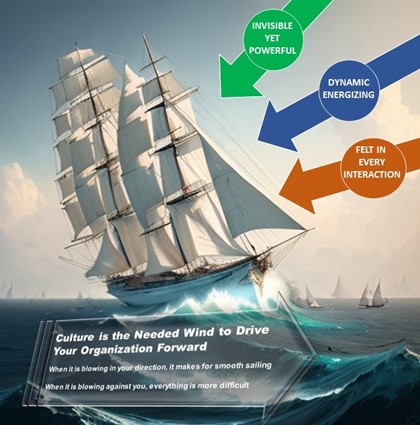
In summary, company culture is important because it shapes the work environment, attracts and retains talent, and drives productivity and business success. It is particularly valuable during challenging times, as it provides stability, resilience, and support to employees, enabling organizations to navigate crises and emerge stronger. Understanding and evolving organizational culture is crucial for sustained success in a changing world.
Culture Evolution – Workshop Solution & Process
The Culture Evolution workshops provide a comprehensive solution for organizations at any level of culture development who are seeking to understand, analyze and evolve their culture to power their business. The workshops cover a range of topics connected to organizational culture, including vision and values, leadership, communication, goal alignment, high-performing teams, diversity & inclusion, employee well-being, talent attraction, employee engagement and retention, customer satisfaction, social responsibility, sustainability, innovation, creativity, resilience and agility.
Through a structured process, participants engage in a series of workshops that facilitate deep exploration and analysis of their organization’s culture. During the workshops, participants engage in interactive exercises, discussions, and case studies that encourage self-reflection and exploration. They are encouraged to share their experiences, challenges, and successes, fostering a collaborative learning environment.
Through this process, participants will gain valuable insights into the current state of their culture, identify areas for improvement, and develop strategies to make necessary adjustments. The workshops provide a roadmap for Culture Evolution, equipping participants with the knowledge, tools, and methods to unleash the potential of their people and drive positive change.

What’s in it for You?
By investing in an analysis of their own company culture through the Culture Evolution workshops, clients gain a powerful starting point for unleashing the potential of their people and driving business success. The workshops offer numerous benefits, including:
1. Enhanced Employee Engagement and Productivity: A strong culture fosters higher levels of employee engagement, leading to increased productivity, improved performance, and a positive work environment. Engaged employees are more committed, motivated, and aligned with the organization’s goals.

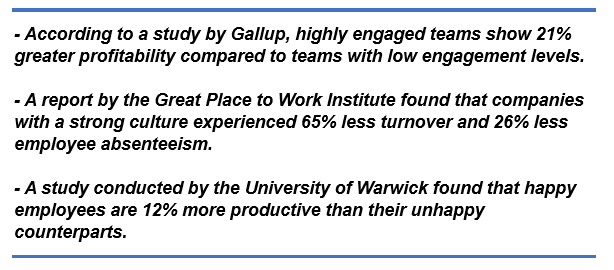
2. Attraction and Retention of Top Talent: A positive culture acts as a magnet for top talent, enabling organizations to attract and retain high-performing individuals who align with the organization’s values and purpose. Employees are more likely to stay with an organization that provides a supportive and inclusive culture.

3. Improved Financial Performance: A strong culture positively impacts financial performance by driving employee productivity, customer satisfaction, and loyalty, ultimately leading to increased profitability and growth. Engaged employees are more likely to go the extra mile, resulting in improved customer experiences and increased revenue.

4. Customer Satisfaction and Loyalty: A positive culture creates a customer-centric environment, enhancing customer satisfaction, loyalty, and advocacy. When employees are aligned with the organization’s values and committed to delivering exceptional customer experiences, customers feel valued and are more likely to become loyal advocates.
5. Innovation and Creativity: A supportive culture encourages innovation and creativity, fostering a culture of continuous improvement and enabling organizations to stay ahead in a competitive market. When employees feel safe to take risks, share ideas, and collaborate, innovation flourishes, leading to new products, services, and processes.

6. Organizational Resilience and Agility: A strong culture promotes resilience and agility, enabling organizations to navigate challenges, adapt to change, and seize opportunities effectively. In a rapidly changing business landscape, organizations with a strong culture can respond quickly, make informed decisions, and pivot when necessary.
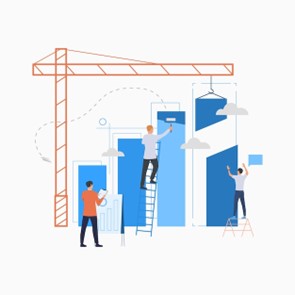

By participating in the Culture Evolution workshops, clients gain the necessary insights, strategies, and tools to analyze and evolve their culture. They can make informed adjustments to different culture levers, aligning their culture with their business goals and driving sustainable success.
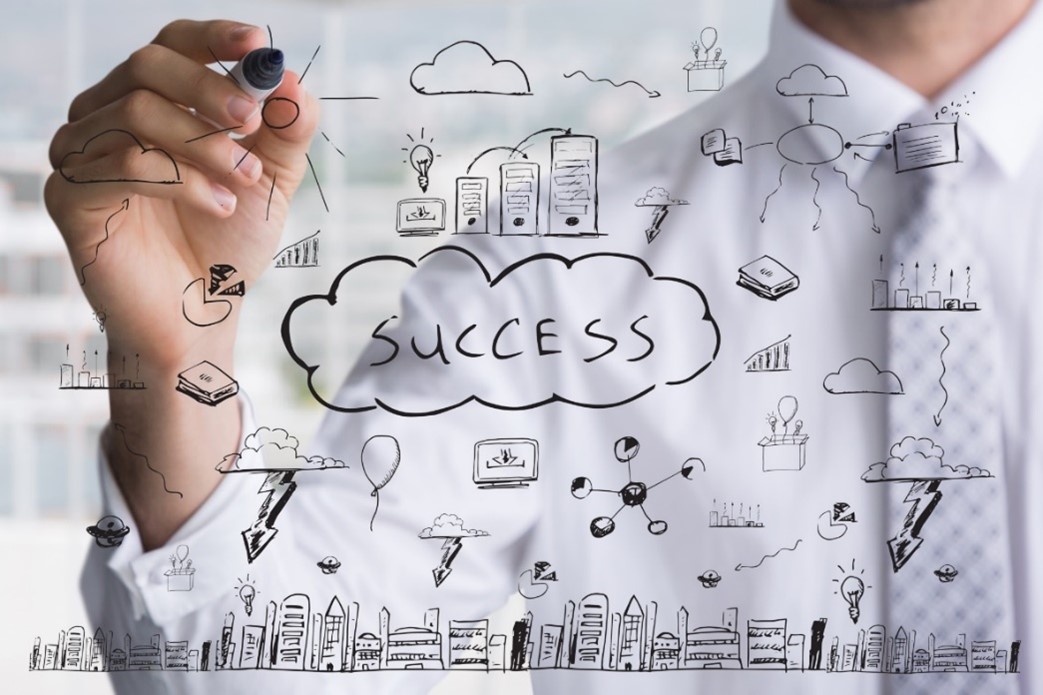

Conclusion
Investing in the Culture Evolution workshops provides organizations with a unique and compelling opportunity to delve deep into their culture and understand its impact on their business – to analyze, and evolve their organizational culture. A strong and healthy culture is directly linked to business value, including employee engagement, productivity, financial performance, customer satisfaction, innovation, and resilience. By participating in the workshops, clients gain valuable insights and strategies to unleash the potential of their people, make necessary adjustments, and drive positive change within their organization. The Culture Evolution workshops offer a transformative journey towards a strong and thriving organizational culture, setting the stage for long-term success and sustainability.
The workshops also provide participants with practical tools and strategies to drive Culture Evolution.
They learn how to align their vision and values with their business goals, ensuring that their culture supports and reinforces their strategic objectives.
Participants explore the role of leadership in shaping culture and develop strategies to cultivate effective leadership behaviors that align with their desired culture.
Communication is another critical aspect covered in the workshops. Participants learn how to foster open and transparent communication channels, ensuring that information flows freely throughout the organization. They also explore the importance of goal alignment, understanding how to cascade goals from the top down, and ensuring that everyone is working towards a common purpose.
High-performing teams are a key driver of organizational success, and the workshops provide insights into building and nurturing such teams. Participants learn how to create an environment that fosters collaboration, trust, and accountability, enabling teams to achieve exceptional results.
Diversity and inclusion are essential components of a healthy culture, and the workshops address the importance of creating a sense of belonging for all employees. Participants explore strategies to promote diversity, equity, and inclusion within their organization, ensuring that everyone feels valued and respected.
Employee well-being is a particularly crucial aspect that is also covered in the workshops. Participants learn how to create a culture that prioritizes their employees’ physical, mental, and emotional well-being. They explore strategies to promote work-life balance, manage stress, and foster a supportive and healthy work environment.
Attracting and retaining top talent is a challenge for many organizations, and the workshops provide insights into creating an employer brand that attracts the best candidates. Participants learn how to showcase their organization’s culture and values to potential employees, ensuring a strong cultural fit.
Employee engagement and retention are closely tied to culture, and the workshops explore strategies to enhance engagement and reduce turnover. Participants learn how to create a culture that empowers and motivates employees, fostering a sense of ownership and commitment.

Customer satisfaction is absolutely essential for business success, and the workshops address the role of culture in delivering exceptional customer experiences. Participants learn how to align their culture with customer needs and expectations, ensuring that every interaction reflects their organization’s values and commitment to customer satisfaction.

Social responsibility and sustainability are increasingly important considerations for organizations, and the workshops explore how culture can drive these initiatives. Participants learn how to embed these responsibilities into their culture, ensuring that their organization operates ethically and contributes positively to society and the environment.
Innovation and creativity are essential for organizations to stay competitive, and the workshops provide insights into fostering a culture of innovation. Participants explore strategies to encourage creativity, risk-taking, and continuous improvement, enabling their organization to adapt and thrive in a rapidly changing business landscape.
Resilience and agility are critical in today’s volatile and uncertain business environment, and the workshops address how culture can support these qualities. Participants learn how to create a culture that embraces change, encourages adaptability, and enables quick decision-making.
By participating in the Culture Evolution workshops, clients gain a comprehensive understanding of their organization’s culture and its impact on their business. They are equipped with practical tools, strategies, and insights to drive Culture Evolution and unleash the potential of their people. The workshops provide a roadmap for organizations to align their culture with their business goals, driving sustainable success and ensuring long-term viability.


Curriculum
Culture Evolution – Part 1- Year 1
- Part 1 Month 1 Culture Evolution
- Part 1 Month 2 Strong Foundation
- Part 1 Month 3 Shaping the Tone
- Part 1 Month 4 Enhancing Alignment
- Part 1 Month 5 Performance Culture
- Part 1 Month 6 Culture of Collaboration
- Part 1 Month 7 Culture of Belonging
- Part 1 Month 8 Culture of Ownership
- Part 1 Month 9 Customer-Centric Culture
- Part 1 Month 10 Cultural Adaptation
- Part 1 Month 11 Culture of Integrity
- Part 1 Month 12 Changing World
Program Objectives
The following list represents the Key Program Objectives (KPO) for the Appleton Greene Culture Evolution corporate training program.
Culture Evolution – Part 1- Year 1
- Part 1 Month 1 Culture Evolution – The first workshop in the “Culture Evolution” series aims to introduce participants to the concept of organizational culture. The workshop will also involve conducting a thorough analysis or culture scan of the client’s organization to gain a comprehensive understanding of its current position and how it is perceived by both internal and external stakeholders. The workshop will serve as a starting point for the series, setting the stage for subsequent workshops. Participants will be guided through an exploration of the fundamental elements of organizational culture, including its impact on employee behaviour, decision-making processes, and overall performance. One of the key objectives of this workshop is to assess the existing culture within the client’s organization. By conducting a culture scan, participants will gain insights into the organization’s strengths, weaknesses, and areas for improvement. This analysis will help identify any gaps between the actual and perceived culture, enabling the development of strategies to bridge these gaps effectively. The workshop will also lay the groundwork for the rest of the series which will consider the key ways in which a strong and healthy organizational culture sets the foundation for a thriving and engaged workforce, fosters innovation and adaptability, and ultimately drives business results. Overall, the first workshop in the “Culture Evolution” series aims to provide participants with a solid understanding of organizational culture and initiate the process of transforming the client’s culture to align with their business strategy and their desired goals and values.
- Part 1 Month 2 Strong Foundation – The second workshop in the series, focuses on establishing a clear sense of purpose and direction for the client’s organization. This workshop recognizes that the mission, vision, and core values of an organization are integral factors in shaping its culture and play a crucial role in inspiring and motivating employees. The workshop will delve into the higher purpose of the business, exploring the fundamental reasons why the organization exists and the impact it aims to make in its industry or community. Participants will be encouraged to reflect on the values and principles that underpin the client’s products and services, as these elements contribute to the overall culture of the organization. By defining a compelling vision, participants will be able to create a shared understanding of the desired future state of the organization. This vision will serve as a guiding light, inspiring employees and providing a sense of direction in their day-to-day work. Additionally, the workshop will emphasize the importance of core values in shaping the organization’s culture. Participants will be guided through a process of identifying and articulating the core values that reflect the desired behaviors and attitudes within the organization. These values will serve as a compass, guiding decision-making processes and fostering a positive and aligned culture. Overall, the second workshop in the series aims to help participants establish a strong foundation for their organization’s culture by defining its mission, vision, and core values. By aligning these elements with the desired culture, the workshop seeks to inspire and motivate employees, creating a sense of purpose and direction within the organization.
- Part 1 Month 3 Shaping the Tone – The third workshop in the “Culture Evolution” series focuses on the crucial role that leaders play in influencing organizational culture. This workshop recognizes that leadership practices, management styles, and decision-making processes have a significant impact on shaping the overall culture of an organization. The workshop will take a deep dive into the evolution and development of the current leadership practices within the client’s organization. Participants will examine how the company is managed, including its hierarchies, structure, and policies. They will also evaluate the level of support and guidance provided by leaders, assessing their accessibility, responsiveness, and effectiveness in addressing employee concerns and providing direction. The workshop will highlight the importance of aligning leadership behaviours with the desired culture of the organization. Participants will explore any necessary changes that leaders need to make in order to drive and sustain a healthy and productive culture. This may involve developing new leadership skills, fostering open communication channels, and promoting a culture of trust and transparency. By addressing the role of leadership in shaping culture, this workshop aims to empower participants to become effective culture champions within their organization. It emphasizes the need for leaders to lead by example and create an environment that supports the desired culture, ultimately fostering employee engagement, productivity, and organizational success. Overall, the third workshop focuses on the critical relationship between leadership and culture. It aims to equip participants with the knowledge and tools to assess and enhance leadership practices, ensuring they align with the desired culture of the organization.
- Part 1 Month 4 Enhancing Alignment – The fourth workshop focuses on the crucial role that effective communication plays in shaping organizational culture. This workshop recognizes that the way people communicate within an organization influences various dimensions of culture, including organizational effectiveness, customer orientation, work discipline, accessibility, speed, openness, goal orientation, and approachability During the workshop we will explore different forms of communication within the organization, including employee-to-employee, employee-to-management, and employee-to-customer interactions. Participants will examine how information is shared, feedback is given, and transparency is maintained in these communication channels. By understanding the impact of communication on culture, participants will be able to identify areas for improvement and develop strategies to enhance cultural alignment. This may involve fostering a culture of open and transparent communication, promoting active listening, and encouraging constructive feedback. The workshop will emphasize the importance of effective communication in creating a positive and productive culture. When communication channels are clear, employees feel more engaged, connected, and motivated. Additionally, effective communication with customers can enhance their experience and perception of the organization. Overall, the fourth workshop in the series aims to equip participants with the knowledge and skills to enhance communication practices within their organization. By improving communication, participants will be able to strengthen cultural alignment, leading to increased organizational effectiveness, improved customer orientation, and a more positive work environment..
- Part 1 Month 5 Performance Culture – The fifth workshop titled “Establishing a Culture of Performance: Aligning Goals and Values,” focuses on creating a culture that promotes high performance and aligns company, team, and individual goals with the organization’s vision and core values. This workshop recognizes that effective performance management relies on a culture that supports and reinforces these goals and values. During the workshop, participants will explore the concept of the “best” culture that enables the business strategy to gain momentum and drive action. They will examine how aligning goals and values can create a culture that fosters employee engagement, motivation, and accountability. The workshop will also involve assessing the extent to which employees align with the core values of the organization. Participants will explore strategies to strengthen this alignment and ensure that the company culture underpins a performance-driven environment. By establishing a culture of performance, participants will be able to create a work environment where employees are motivated to achieve their goals and contribute to the overall success of the organization. This workshop emphasizes the importance of aligning individual and team objectives with the company’s vision and core values, as this alignment drives employee performance and enhances organizational effectiveness. Overall, the fifth workshop in the “Culture Evolution” series aims to guide participants in establishing a culture that promotes high performance. By aligning goals and values, participants will be able to create a performance-driven environment that supports the organization’s strategic objectives and fosters a sense of purpose and achievement among employees.
- Part 1 Month 6 Culture of Collaboration – The sixth workshop focuses on the importance of a strong culture in enhancing teamwork and collaboration within an organization. This workshop recognizes that when employees feel valued, respected, and supported, they are more likely to work together, share knowledge, and leverage each other’s strengths. During the workshop, participants will explore how culture influences and contributes to building high-performing teams. They will examine the ways in which a positive culture fosters an environment of trust, open communication, and cooperation, which are essential for effective collaboration. The workshop will highlight the ripple effect that a culture of collaboration and teamwork can have throughout the organization. When employees work together synergistically, it leads to improved communication, higher efficiencies, and better outcomes. This positive impact can extend to all levels of the organization, from individual teams to cross-functional collaborations. Participants will also explore strategies and best practices for cultivating a culture of collaboration and teamwork. This may involve fostering a sense of psychological safety, promoting a culture of continuous learning and development, and providing opportunities for team-building activities. Overall, the sixth workshop aims to guide participants in understanding how culture influences teamwork and collaboration. By cultivating a culture that values and supports collaboration, participants will be able to create an environment where employees work together effectively, leading to improved communication, increased efficiencies, and better overall outcomes for the organization.
- Part 1 Month 7 Culture of Belonging – The seventh workshop titled “Fostering a Culture of Belonging and Well-being,” delves into the complex areas of employee well-being, work-life balance, diversity, and inclusion, and their connection to organizational culture. This workshop recognizes that culture plays a significant role in shaping decisions and practices related to employee well-being and creating a sense of belonging within the organization. During the workshop, participants will explore current thinking and research on employee well-being and work-life balance, examining how culture impacts these areas. They will discuss the importance of creating a culture that supports and prioritizes the well-being of employees, recognizing that a healthy work-life balance contributes to overall job satisfaction and productivity. The workshop will also address the significance of fostering a culture of belonging that embraces diversity and inclusion. Participants will explore how culture influences the level of inclusivity within the organization and the impact it has on employee engagement and satisfaction. By understanding the connection between these topics and organizational culture, participants will be able to identify areas for improvement and develop strategies to foster a culture that promotes well-being, work-life balance, diversity, and inclusion. This may involve implementing policies and practices that support employee well-being, promoting flexible work arrangements, and creating a culture that values and respects diversity. Overall, the seventh workshop aims to guide participants in understanding how culture influences employee well-being, work-life balance, diversity, and inclusion. By fostering a culture that prioritizes these areas, participants will be able to create an environment where employees feel a sense of belonging, are supported in their well-being, and can thrive both personally and professionally.
- Part 1 Month 8 Culture of Ownership – This workshop focuses on the crucial role that a healthy culture plays in fuelling employee engagement. This workshop recognizes that engaged employees are more committed, motivated, and productive, leading to increased collaboration, innovation, problem-solving, and agility within the organization. During the workshop, participants will explore how culture influences employee engagement and the factors that contribute to it. They will assess the level of commitment, motivation, and satisfaction among employees within their organization and explore processes to measure these key factors. The workshop will also address the connection between employee engagement and employee development and growth. Participants will explore how a healthy culture supports and fosters opportunities for employees to learn, grow, and advance in their careers. By understanding the relationship between culture and employee engagement, participants will be able to identify strategies to create a culture that promotes ownership and engagement. This may involve fostering a sense of purpose and autonomy, providing opportunities for skill development and career advancement, and recognizing and rewarding employee contributions. Overall, the eighth workshop aims to guide participants in understanding how culture influences employee engagement and development. By creating a culture that supports ownership and engagement, participants will be able to cultivate a workforce that is committed, motivated, and productive, leading to increased innovation, problem-solving, and adaptability within the organization.
- Part 1 Month 9 Customer-Centric Culture – Workshop 9 in the “Culture Evolution” series focuses on the importance of a positive culture in enhancing customer satisfaction. This workshop recognizes that when employees are happy, engaged, and aligned with a customer-centric mindset, they are more likely to provide excellent customer service, build strong relationships, and deliver exceptional experiences. During the workshop, participants will explore how culture influences the customer experience and the impact it has on customer satisfaction and loyalty. They will discuss the connection between employee engagement, satisfaction, and their ability to create positive interactions with customers. The workshop will also address the orientation of the business, whether it is function-oriented, task-oriented, employee-oriented, customer-oriented, or a combination of these. Participants will gain clarity on the priorities of their organization and how they align with creating a customer-centric culture. By understanding the relationship between culture and customer satisfaction, participants will be able to identify strategies to build a culture that prioritizes exceptional customer experiences. This may involve fostering a customer-centric mindset, providing training and resources to support employees in delivering excellent service, and creating a culture that values and prioritizes customer feedback. Overall, this workshop aims to guide participants in understanding how culture influences the customer experience. By building a customer-centric culture, participants will be able to create an environment where employees are motivated and empowered to provide exceptional service, leading to increased customer satisfaction, loyalty, and positive word-of-mouth referrals.
- Part 1 Month 10 Cultural Adaptation – This workshop will focus on the importance of assessing an organization’s culture and its compatibility with different cultures around the world. This workshop recognizes that when expanding into global markets, it is crucial to understand how the organization’s culture aligns with the cultures of the markets being served or targeted. During the workshop, participants will explore the concept of cultural adaptation and its significance in international business. They will assess whether their organization’s culture fits or works within different cultures around the world, considering factors such as values, communication styles, and business practices. The workshop will also address the importance of cultural intelligence and sensitivity when entering new markets. Participants will gain insights into the cultural nuances and expectations of different regions, enabling them to adapt their organizational culture to better resonate with local customers and stakeholders. By understanding the relationship between culture and global market expansion, participants will be able to identify strategies to adapt their culture to fit different cultural contexts. This may involve modifying communication styles, adjusting business practices, and fostering a culture of cultural awareness and adaptability. Overall, the tenth workshop in the series aims to guide participants in understanding how culture influences global market expansion. By assessing and adapting their organizational culture to fit different cultures, participants will be better equipped to enter new markets with their products and services, fostering stronger connections and increasing the likelihood of success in diverse cultural contexts.
- Part 1 Month 11 Culture of Integrity – The penultimate workshop focuses on the importance of fostering a culture that prioritizes ethical behaviour, social responsibility, and sustainable practices. This workshop recognizes that a strong culture of integrity and responsibility not only benefits the organization but also contributes to the well-being of society and the environment. During the workshop, participants will explore the role of culture in upholding integrity and ethical behaviour within the organization. We will discuss the importance of establishing clear values, ethical guidelines, and accountability mechanisms to ensure that employees act with integrity in their interactions with stakeholders. The workshop will also address the concept of social responsibility and how culture influences an organization’s commitment to making a positive impact on society. Participants will explore strategies for integrating social responsibility into the organization’s culture, such as supporting community initiatives, promoting diversity and inclusion, and fostering a culture of giving back. Additionally, the workshop will delve into the significance of sustainability and how culture can drive environmentally responsible practices. Participants will examine ways to embed sustainability into the organization’s culture, including reducing waste, conserving resources, and promoting environmentally friendly initiatives. By understanding the connection between culture, integrity, social responsibility, and sustainability, participants will be able to identify strategies to uphold these values within their organization. This may involve establishing clear policies, providing training and education, and fostering a culture that values ethical behaviour, social impact, and environmental stewardship. Overall, the eleventh workshop in the “Culture Evolution” series aims to guide participants in understanding how culture influences integrity, social responsibility, and sustainability. By upholding a culture that prioritizes these values, participants will be able to create an organization that not only achieves business success but also contributes positively to society and the environment.
- Part 1 Month 12 Changing World – Workshop 12, the final instalment in the “Culture Evolution” series will focus on the crucial topics of innovation, resilience, and agility in the face of a rapidly changing world, and how these aspects are influenced by an organization’s culture. During the workshop, participants will review the processes and metrics that were agreed upon and implemented during the previous workshops. They will assess the progress made in cultivating a culture that supports innovation, resilience, and agility, and identify areas for further improvement. The workshop will also explore the role of culture in fostering innovation within the organization. Participants will discuss strategies for encouraging creativity, risk-taking, and continuous improvement, and how these elements can be embedded into the organization’s culture. Additionally, the workshop will address the importance of resilience and adaptability in navigating change and uncertainty. Participants will examine how culture can support resilience by promoting a growth mindset, fostering open communication, and providing support and resources for employees during challenging times. By understanding the connection between culture, innovation, resilience, and agility, participants will be able to identify next steps for their organization’s culture to thrive in the years to come. This may involve refining processes, revisiting metrics, and continuously nurturing a culture that embraces change, encourages innovation, and fosters resilience and agility. Overall, the twelfth and final workshop in the “Culture Evolution” series aims to guide participants in reflecting on the progress made and charting a path forward for their organization’s culture. By prioritizing innovation, resilience, and agility, participants will be better equipped to navigate the ever-changing landscape and ensure the long-term success and sustainability of their organization
Methodology
Culture Evolution
The workshops offered by Culture Evolution present a comprehensive solution for organizations wherever they find themselves in their cultural development journey. These workshops aim to assist organizations in comprehending, analyzing, and advancing their culture to enhance their business operations. The workshop topics encompass various aspects of organizational culture, including vision and values, leadership, communication, goal alignment, team performance, diversity and inclusion, employee well-being, talent attraction, engagement and retention, customer satisfaction, social responsibility, sustainability, innovation, creativity, resilience, and agility.
Through a well-structured process, participants actively engage in a series of workshops that facilitate in-depth exploration and analysis of their organization’s culture. These workshops incorporate interactive exercises, discussions, and case studies to encourage self-reflection and exploration. Participants are encouraged to openly share their experiences, challenges, and successes, fostering a collaborative learning environment.
By participating in these workshops, individuals gain valuable insights into the current state of their organization’s culture. They are able to identify areas that require improvement and develop strategies to implement necessary adjustments. Ultimately, these workshops provide a roadmap for the evolution of organizational culture, equipping participants with the knowledge, tools, and methods needed to unlock the potential of their workforce and drive positive change.
Methodology for Program Planning
In order to effectively plan this corporate training program, a systematic approach is required. The ADDIE model provides a useful process to follow. ADDIE stands for Analysis, Design, Development, Implementation, and Evaluation. This model ensures that all aspects related to the Culture Evolution workshop program are thoroughly considered and planned for.

During the analysis phase, the culture and training needs of the organization and its employees are identified. This involves conducting a thorough assessment of the current behaviors, skills and knowledge gaps, as well as understanding the organization’s vision, values and business strategy. By gathering this information, the program workshops will be tailored to address specific needs and align with the overall strategy.
The starting point for the design phase is the pre-defined Curriculum and detailed Program Objectives for each of the 12 workshops. This is essentially a blueprint for the program. Together with the client organization we will determine bespoke learning objectives, select state-of-the-art instructional design methods, and design the content and materials. We will identify the target audience and their learning preferences to ensure the program is engaging, effective and “sticky”.
Methodology for Program Development
In developing the training material and resources we will use the Rapid Prototyping approach. We will create a working prototype or a sample module of each workshop and test it with a small group of participants. Feedback from this pilot group is then used to refine and improve the program before full-scale development.
During the development phase, our instructional designers and subject matter experts in the area of culture, organizational development, leadership, team development, communication, change management, and other specialist areas collaborate to create the content, activities, and assessments. The workshop activities and materials will be interactive, engaging, and aligned with the learning objectives. We will consider different learning styles and incorporate a variety of instructional design methods to cater to diverse participants.
Methodology for Program Implementation
Implementing these corporate training workshops and getting traction across the entire organization requires careful planning and coordination. One methodology that can be used at a later point in time is the Train-the-Trainer approach. This involves training a group of internal trainers who will then deliver further bespoke workshops to all employees. These trainers should be knowledgeable about the content, skilled in facilitation, and able to adapt the program to meet the needs of different participants.
During the implementation phase, ongoing support will be provided to the trainers and participants. This will include regular check-ins, providing additional resources, and addressing any challenges or concerns that arise.
We recognize the importance of creating a positive and inclusive learning environment that encourages active participation and collaboration.
Methodology for Program Review
To ensure the effectiveness and continuous improvement of our corporate training workshops program, a methodology for program review is essential. One approach that we can use is the Kirkpatrick Model, which consists of four levels of evaluation: reaction, learning, behavior, and results.
The reaction level involves gathering feedback from participants to assess their satisfaction and engagement with the program. This can be done through surveys, interviews, or focus groups. The learning level focuses on assessing the knowledge and skills gained by participants through pre and post-training assessments or performance evaluations.
The behavior level examines whether the participants are applying what they have learned in their work environment. This can be measured through observation, interviews, or self-assessments.
Finally, the results level evaluates the impact of the training program on the organization’s goals and objectives. This is the ultimate measure of success and should include metrics such as increased employee engagement, collaboration and productivity, improved employee well-being and retention, customer satisfaction, and increased profitability. The Phillips methodology is an additional metric to assess the success of the workshops measuring training return on investment (ROI) and/or return on expectations (ROE).
By gathering comprehensive data we can assess the effectiveness of the workshop program and make informed decisions for future improvements. Regular program reviews should be conducted to ensure that the training program remains relevant and aligned with the organization’s evolving needs.
Industries
This service is primarily available to the following industry sectors:

Construction
The construction industry sector has a rich commercial history that dates back centuries. From the ancient civilizations of Egypt and Mesopotamia to the modern skyscrapers of today, construction has played a vital role in shaping societies and economies around the world.
During the Middle Ages, the construction industry faced significant challenges due to political instability and the decline of centralized authority. However, the construction of cathedrals and castles continued to be a prominent feature of this period. Skilled craftsmen, such as stonemasons and carpenters, played a crucial role in these projects.
The Industrial Revolution marked a turning point in the construction industry. The invention of steam-powered machinery and the use of iron and steel revolutionized the construction process. This led to the construction of large-scale infrastructure projects such as railways, bridges, and factories. The construction industry became more organized, with the emergence of specialized contractors and the introduction of project management techniques.
In the 20th century, the construction industry experienced further advancements with the introduction of new materials and technologies. The use of reinforced concrete and steel frames allowed for the construction of taller and more complex structures. The development of heavy machinery, such as cranes and excavators, increased efficiency and productivity on construction sites.
The current position of the global construction industry is strong commercially. This is driven by several factors that have contributed to its growth and stability. One of the key drivers is the increasing demand for infrastructure development in emerging economies. Countries such as China, India, and Brazil are investing heavily in building new roads, bridges, airports, and other essential infrastructure to support their growing populations and economies. This has created a significant market for construction companies, both domestic and international, on which to capitalize.
Another factor contributing to the commercial position of the global construction industry is the rise in urbanization. As more people move to cities in search of better opportunities, the need for housing, commercial buildings, and other urban infrastructure has increased. This has led to a surge in construction projects, particularly in developing countries where urbanization rates are the highest. Construction companies are benefiting from this trend by securing contracts for large-scale projects and expanding their operations to meet the growing demand.
Advancements in technology and innovation have also boosted the global construction industry. The adoption of Building Information Modelling (BIM), drones, and other digital tools has improved project efficiency, reduced costs, and enhanced safety. These technological advancements have made construction processes more streamlined and opened up new opportunities for companies to offer specialized services and products.
Additionally, the construction industry has witnessed a shift towards sustainable and green building practices. With increasing awareness about climate change and environmental concerns, there is a growing demand for eco-friendly construction materials and energy-efficient buildings. Construction companies that can offer sustainable solutions are gaining a competitive edge in the market and attracting environmentally conscious clients.
However, despite the positive commercial position, the global construction industry also faces challenges. One of the major challenges is the rising cost of raw materials, such as steel and cement, which can impact project budgets and profitability. Additionally, geopolitical uncertainties, trade disputes, and regulatory changes can create uncertainties and affect international construction projects.
The future outlook for the construction industry is promising. It will however require adaptation and innovation. The future commercial position of the global construction industry is expected to remain strong, driven by several key trends and factors. One of the main drivers being the continued urbanization and population growth in many parts of the world. As more people move to cities, the demand for housing, commercial buildings, and infrastructure will continue to rise, creating a steady stream of construction projects.
Another significant trend already shaping the construction industry’s future is the increasing focus on sustainability and green building practices. Governments and organizations worldwide are prioritizing environmental conservation and energy efficiency, leading to stricter regulations and incentives for sustainable construction. This shift towards eco-friendly practices will create new opportunities for construction companies that can offer innovative solutions and expertise in green building.
Advancements in technology and digitalization will continue to play a crucial role in shaping the future commercial position of the construction industry. Building Information Modelling (BIM), virtual reality, drones, and other digital tools will continue to improve project efficiency, reduce costs, and enhance collaboration among stakeholders. Construction companies and suppliers to the construction industry that embrace these technologies and invest in digital transformation will have a competitive advantage in the market.
Additionally, the global construction industry is likely to benefit from increased investment in infrastructure development. Governments around the world are recognizing the importance of infrastructure in driving economic growth and are allocating significant funds for large-scale projects. This includes investments in transportation networks, renewable energy infrastructure, and smart cities. Construction companies that can secure contracts for these projects will have a strong commercial position in the future.
It’s worthy of note though that historically, one of the main challenges when the industry is in a strong position, is the shortage of skilled labor. As the demand for construction projects increases, there is a growing need for skilled workers, including engineers, architects, and construction workers. Construction companies will need to invest in training and development programs in order to attract and retain talent.
In conclusion, the future commercial position of the global construction industry looks promising, driven by trends such as urbanization, sustainability, technological advancements, and infrastructure investment. However, addressing challenges such as rising material costs and particularly the potential labor shortages will be crucial for sustained growth and profitability in the industry.

Manufacturing
The manufacturing industry has played a pivotal role in shaping the global economy over the past 50 years and has undergone significant transformations. The period from the 1970s to the 1990s witnessed a shift in manufacturing power from developed countries to emerging economies, primarily due to lower labor costs. Countries like China, India, and Brazil emerged as major manufacturing hubs, attracting multinational corporations seeking cost-effective production.
The 1980s marked the advent of automation and computerization, leading to increased efficiency and productivity. This era also saw the rise of lean manufacturing principles, such as Just-in-Time (JIT) production and Total Quality Management (TQM), which aimed to minimize waste and improve product quality.
In the 1990s, globalization gained momentum, driven by advancements in transportation and communication technologies. This led to the establishment of global supply chains, enabling companies to source components and assemble products from various countries. The North American Free Trade Agreement (NAFTA) and the formation of the World Trade Organization (WTO) further facilitated international trade.
The 2000s witnessed the emergence of digital manufacturing technologies, including 3D printing and robotics. These innovations revolutionized production processes, allowing for greater customization, reduced lead times, and improved cost-efficiency. Additionally, sustainability and environmental concerns gained prominence, leading to the adoption of eco-friendly manufacturing practices.
The manufacturing industry remains a vital contributor to the global economy. According to the United Nations Industrial Development Organization (UNIDO), global manufacturing value added (MVA) reached $12.3 trillion in 2019, accounting for approximately 15% of the world’s GDP. However, the COVID-19 pandemic has significantly impacted the sector, disrupting supply chains and causing a decline in production.
China has emerged as the world’s largest manufacturing economy, accounting for nearly 30% of global manufacturing output. Other major manufacturing nations include the United States, Japan, Germany, and South Korea. These countries possess advanced technological capabilities, skilled workforces, and robust infrastructure, enabling them to maintain their competitive edge.
The manufacturing sector has witnessed a shift towards advanced manufacturing techniques, such as Industry 4.0. This concept encompasses the integration of cyber-physical systems, the Internet of Things (IoT), artificial intelligence (AI), and big data analytics into manufacturing processes. These technologies enhance productivity, enable predictive maintenance, and facilitate real-time decision-making.
The manufacturing industry is poised for further transformation in the coming years. Several trends are expected to shape its future:
1. Reshoring and Regionalization: The COVID-19 pandemic exposed vulnerabilities in global supply chains, leading to a renewed focus on domestic production and regionalization. Companies are likely to diversify their manufacturing bases to reduce dependence on a single country or region.
2. Sustainable Manufacturing: Environmental concerns and regulatory pressures will drive the adoption of sustainable manufacturing practices. This includes the use of renewable energy sources, waste reduction, and circular economy principles.
3. Advanced Technologies: Industry 4.0 technologies will continue to revolutionize manufacturing processes. AI, robotics, and automation will further enhance productivity, while additive manufacturing and nanotechnology will enable the production of complex and customized products.
4. Workforce Transformation: The integration of advanced technologies will require a skilled workforce capable of operating and maintaining these systems. Upskilling and reskilling programs will be crucial to bridge the skills gap and ensure a competent workforce.
5. Digitalization and Connectivity: The Internet of Things (IoT) will enable seamless connectivity across the manufacturing value chain, facilitating real-time data exchange and predictive analytics. This will enhance efficiency, reduce downtime, and enable proactive maintenance.
The manufacturing industry has undergone significant changes over the past 50 years, driven by globalization, technological advancements, and changing consumer demands. Despite challenges, the sector remains a vital contributor to the global economy. Looking ahead, the industry is expected to embrace sustainable practices, advanced technologies, and regionalization to adapt to evolving market dynamics. By leveraging these opportunities, the manufacturing sector can continue to drive economic growth and innovation on a global scale.

Chemicals
The chemicals industry has been a cornerstone of global economic development for decades. This summary provides an overview of the industry’s commercial history, its current position, and a future outlook. It also includes key global facts and figures to offer a comprehensive understanding of the sector’s significance.
Over the past five decades, the chemicals industry has experienced significant transformations. The 1970s and 1980s witnessed a period of rapid growth, driven by increasing demand for chemicals in various sectors, including agriculture, construction, and consumer goods. During this time, the industry expanded its product portfolio and geographical reach.
The 1990s marked a shift towards globalization, as chemical companies sought to tap into emerging markets and take advantage of lower production costs. This era also saw increased focus on sustainability and environmental regulations, leading to the development of greener and more eco-friendly chemical products and processes.
In the 2000s, the industry faced challenges such as rising raw material costs, increased competition, and stricter regulations. To remain competitive, chemical companies began adopting digital technologies and process optimization techniques to improve efficiency and reduce costs. Additionally, mergers and acquisitions became prevalent, leading to industry consolidation and the emergence of global chemical giants.
The chemicals industry continues to play a vital role in the global economy. According to the International Council of Chemical Associations (ICCA), the global chemical industry’s sales reached $5.7 trillion in 2019, accounting for approximately 3.4% of the world’s GDP. The sector employs millions of people worldwide and serves as a key enabler for various downstream industries.
Asia-Pacific has emerged as the largest chemicals market, driven by rapid industrialization and urbanization in countries like China and India. North America and Europe also maintain significant market shares, with established chemical clusters and advanced research and development capabilities.
The industry is characterized by its diverse product portfolio, including basic chemicals, specialty chemicals, and advanced materials. Basic chemicals, such as petrochemicals and polymers, form the foundation of many downstream industries. Specialty chemicals, on the other hand, cater to specific applications and offer higher value-add. Advanced materials, including composites and nanomaterials, are gaining prominence due to their unique properties and applications.
The chemicals industry is poised for further growth and transformation in the coming years. Several trends are expected to shape its future:
1. Sustainability and Circular Economy: Environmental concerns and regulatory pressures will drive the adoption of sustainable practices across the chemicals value chain. This includes the development of bio-based chemicals, recycling initiatives, and the transition towards a circular economy model.
2. Digitalization and Industry 4.0: The industry will increasingly leverage digital technologies, such as artificial intelligence, big data analytics, and the Internet of Things (IoT), to optimize processes, enhance product development, and improve supply chain efficiency. This will lead to increased automation, predictive maintenance, and real-time monitoring.
3. Advanced Materials and Nanotechnology: The demand for advanced materials, including lightweight composites, high-performance polymers, and nanomaterials, will continue to grow. These materials offer unique properties and find applications in sectors such as aerospace, electronics, and healthcare.
4. Shift towards Specialty Chemicals: The industry is witnessing a shift towards specialty chemicals, driven by increasing consumer demands for customized and high-value products. Specialty chemicals offer unique functionalities and cater to specific applications, providing opportunities for differentiation and higher profit margins.
5. Focus on Health and Safety: The chemicals industry will place greater emphasis on health and safety, both for workers and consumers. This includes the development of safer chemicals, adherence to strict regulations, and the implementation of robust safety protocols.
The chemicals industry has undergone significant changes over the past 50 years, driven by globalization, sustainability concerns, and technological advancements. Despite challenges, the sector remains a vital contributor to the global economy. Looking ahead, the industry is expected to embrace sustainability, digitalization, and advanced materials to meet evolving market demands. By leveraging these opportunities, the chemicals sector can continue to drive innovation, economic growth, and contribute to a more sustainable future.

Healthcare
The healthcare industry plays a crucial role in society, providing essential medical services to individuals and communities. Over the past 50 years, the industry has undergone significant transformations, driven by advancements in medical technology, changing demographics, and evolving healthcare policies.
In the mid-20th century, healthcare was primarily delivered through a fee-for-service model, where patients paid directly for the services they received. This system had its limitations, as it often resulted in high costs and limited access to care, particularly for those with lower incomes or pre-existing conditions.
The commercial history of the healthcare industry took a significant turn with the introduction of government-funded healthcare programs, such as Medicare and Medicaid in the United States. These programs aimed to provide affordable healthcare to vulnerable populations, including the elderly and low-income individuals. This shift towards public funding marked a significant milestone in expanding access to healthcare services.
Another key development in the commercial history of healthcare was the rise of managed care organizations (MCOs) in the 1980s and 1990s. MCOs introduced a new approach to healthcare delivery, emphasizing cost containment and coordination of care. Health maintenance organizations (HMOs) and preferred provider organizations (PPOs) became popular models, offering patients a network of providers and negotiated rates for services.
The late 20th century also witnessed rapid advancements in medical technology, leading to improved diagnostics, treatments, and patient outcomes. Innovations such as magnetic resonance imaging (MRI), minimally invasive surgeries, and pharmaceutical breakthroughs revolutionized healthcare practices and expanded treatment options.
The healthcare sector today is a complex and dynamic industry, encompassing a wide range of stakeholders, including hospitals, clinics, pharmaceutical companies, insurance providers, and medical device manufacturers. It is characterized by a mix of public and private funding, with various models of healthcare delivery and payment systems across different countries.
One of the key challenges facing the healthcare sector is rising healthcare costs. Factors such as an aging population, the prevalence of chronic diseases, and the high cost of medical technologies contribute to the increasing financial burden on individuals, governments, and insurance providers. Efforts to control costs and improve efficiency have led to the adoption of value-based care models, which focus on delivering high-quality care at lower costs.
The COVID-19 pandemic has also had a profound impact on the healthcare industry. It has highlighted the importance of public health infrastructure, emergency preparedness, and the need for collaboration among healthcare providers and governments. The pandemic has accelerated the adoption of telehealth and digital health solutions, allowing for remote consultations, monitoring, and delivery of care.
The healthcare sector is witnessing a shift towards patient-centered care and personalized medicine. Advances in genomics, precision medicine, and data analytics are enabling healthcare providers to tailor treatments to individual patients, improving outcomes and reducing adverse effects. This personalized approach also extends to patient engagement and empowerment, with increased emphasis on shared decision-making and patient involvement in their own care.
Looking ahead, the healthcare industry is poised for further transformation and innovation. Several trends are expected to shape its commercial future.
Firstly, the integration of technology and healthcare will continue to accelerate. Artificial intelligence (AI), machine learning, and big data analytics will play a crucial role in improving diagnostics, predicting disease outcomes, and optimizing treatment plans. Wearable devices, remote monitoring, and telemedicine will become more prevalent, enabling patients to access care from the comfort of their homes and reducing the burden on healthcare facilities.
Secondly, the focus on preventive care and population health management will intensify. Healthcare systems will increasingly prioritize early detection, disease prevention, and health promotion. This shift towards proactive and holistic approaches to healthcare will require collaboration among healthcare providers, public health agencies, and community organizations.
Thirdly, the healthcare industry will witness increased collaboration and partnerships between different stakeholders. Integrated delivery networks, accountable care organizations, and public-private partnerships will become more common, aiming to improve care coordination, streamline processes, and enhance patient outcomes. Cross-sector collaborations, such as those between healthcare and technology companies, will drive innovation and the development of new solutions.
Lastly, the global healthcare landscape will face challenges related to healthcare disparities, access to care, and the sustainability of healthcare systems. Addressing these issues will require policy reforms, investment in healthcare infrastructure, and a focus on health equity. The role of governments, international organizations, and the private sector will be crucial in shaping a more inclusive and sustainable healthcare future.
In conclusion, the healthcare industry has undergone significant commercial changes driven by technological advancements, policy reforms, and changing patient needs. The current commercial position of the sector is characterized by rising costs, the adoption of value-based care models, and the integration of technology. The future outlook of the healthcare industry points towards further innovation, personalized medicine, preventive care, and increased collaboration among stakeholders. Addressing healthcare disparities and ensuring access to quality care will be key priorities in shaping a sustainable and equitable healthcare future.

Travel & Tourism
Over the past five decades, the travel and tourism industry has undergone remarkable changes. The 1970s and 1980s witnessed a surge in international travel, driven by increased disposable income, advancements in transportation, and the liberalization of air travel. This era marked the rise of mass tourism, with package holidays becoming popular among middle-class travelers.
In the 1990s, globalization and technological advancements, such as the internet, revolutionized the industry. Online travel agencies and booking platforms emerged, providing travelers with easy access to information and the ability to book flights, accommodations, and activities. This era also saw the growth of low-cost carriers, making air travel more affordable and accessible.
The 2000s witnessed a shift towards experiential and sustainable tourism. Travelers sought authentic and immersive experiences, leading to the rise of ecotourism, adventure tourism, and cultural tourism. Sustainability became a key focus, with efforts to minimize the industry’s environmental impact and support local communities.
The travel and tourism industry is a significant contributor to the global economy. According to the World Travel and Tourism Council (WTTC), the sector’s direct contribution to global GDP was $2.9 trillion (3.3% of total GDP) in 2019. It also supported over 330 million jobs worldwide, accounting for 10.3% of total employment.
Asia-Pacific is the largest travel and tourism market, driven by the region’s growing middle class and increasing outbound travel from countries like China and India. Europe and North America also maintain strong positions, benefiting from well-established tourism infrastructure and cultural attractions.
The COVID-19 pandemic severely impacted the industry, leading to travel restrictions, border closures, and a significant decline in international tourism. According to the United Nations World Tourism Organization (UNWTO), international tourist arrivals declined by 74% in 2020 compared to the previous year. The sector faced unprecedented challenges, including job losses, business closures, and a slow recovery.
While the travel and tourism industry faces immediate challenges, it is expected to recover and adapt in the long term. Several trends are likely to shape its future:
1. Recovery and Resilience: As vaccination efforts progress and travel restrictions ease, the industry is already experiencing a gradual recovery. However, the pace of recovery will vary across regions and sectors, with domestic and nature-based tourism likely to rebound faster.
2. Digital Transformation: The industry will continue to embrace digital technologies to enhance the travel experience and improve operational efficiency. This includes contactless check-ins, digital health passports, and personalized recommendations based on data analytics.
3. Sustainable and Responsible Tourism: The focus on sustainability and responsible tourism will intensify. Travelers are increasingly seeking destinations and businesses that prioritize environmental conservation, community engagement, and cultural preservation. This will drive the adoption of sustainable practices and the development of eco-friendly tourism offerings.
4. Shift in Travel Patterns: The pandemic reshaped travel patterns, with a greater emphasis on domestic and regional travel. Travelers are likely to prioritize health and safety, opting for less crowded destinations and seeking outdoor and nature-based experiences.
5. Collaboration and Innovation: The industry will witness increased collaboration between stakeholders, including governments, tourism boards, and businesses, to rebuild and promote destinations. Innovation will play a crucial role in developing new products and services that cater to changing consumer preferences.
The travel and tourism industry has evolved significantly over the past 50 years, driven by globalization, technological advancements, and changing consumer demands. While the COVID-19 pandemic has presented unprecedented challenges, the sector is expected to recover and adapt in the long term. By embracing sustainability, digital transformation, and collaboration, the travel and tourism industry can rebuild and thrive, contributing to economic growth, job creation, and cultural exchange on a global scale.

Non-Profit & Charity
The nonprofit and charity industry plays a crucial role in addressing social, environmental, and humanitarian issues worldwide.
Over the past five decades, the nonprofit and charity industry has experienced significant growth and transformation. The 1970s and 1980s witnessed a rise in social activism and awareness, leading to the establishment of numerous nonprofit organizations focused on various causes, such as human rights, environmental conservation, and healthcare.
In the 1990s, globalization and technological advancements facilitated greater collaboration and communication among nonprofits. The internet revolutionized fundraising efforts, enabling organizations to reach a wider audience and collect donations more efficiently. This era also saw the emergence of corporate social responsibility (CSR), with businesses partnering with nonprofits to address societal challenges.
The 2000s marked a shift towards impact measurement and accountability. Donors and stakeholders began demanding transparency and evidence of the effectiveness of nonprofit programs. This led to the adoption of outcome-based evaluation methods and the increased use of data and metrics to demonstrate impact.
The nonprofit and charity sector is a significant force for social change globally. According to the Johns Hopkins Center for Civil Society Studies, the sector employed over 12 million people and contributed $2.5 trillion to the global economy in 2019. It encompasses a wide range of organizations, including charities, foundations, NGOs, and social enterprises.
The sector’s commercial position varies across regions. North America has the largest nonprofit sector, accounting for approximately 1.5% of the region’s GDP. Europe also has a strong nonprofit presence, with countries like the United Kingdom and Germany boasting vibrant charity sectors. In developing regions, nonprofits play a crucial role in addressing poverty, education, and healthcare challenges.
The COVID-19 pandemic has had a significant impact on the sector. Nonprofits have faced increased demand for their services while grappling with reduced funding and resources. Many organizations have had to adapt their operations and fundraising strategies to navigate the challenges posed by the pandemic.
The nonprofit and charity sector is expected to undergo further changes and adaptations in the coming years. Several trends are likely to shape its future:
1. Digital Transformation: The sector will continue to embrace digital technologies to enhance operations, fundraising, and communication. Online platforms, social media, and crowdfunding will play an increasingly important role in engaging donors, volunteers, and beneficiaries.
2. Collaboration and Partnerships: Nonprofits will increasingly collaborate with other organizations, including businesses, governments, and other nonprofits, to address complex social challenges. Partnerships can leverage resources, expertise, and networks to achieve greater impact.
3. Impact Measurement and Transparency: The sector will continue to prioritize impact measurement and transparency to build trust with donors and stakeholders. Nonprofits will invest in robust monitoring and evaluation systems to demonstrate the effectiveness of their programs and ensure accountability.
4. Focus on Innovation and Scalability: Nonprofits will seek innovative solutions to address social issues and strive for scalability. This includes leveraging technology, adopting entrepreneurial approaches, and exploring new funding models, such as impact investing and social enterprise.
5. Increased Emphasis on Diversity, Equity, and Inclusion: The sector will prioritize diversity, equity, and inclusion in its operations and programs. Nonprofits will work towards ensuring equal access to resources and opportunities for marginalized communities and underrepresented groups.
The nonprofit and charity industry has evolved significantly over the past 50 years, driven by social awareness, technological advancements, and changing donor expectations. Despite the challenges posed by the COVID-19 pandemic, the sector remains a vital force for social change globally. By embracing digital transformation, collaboration, impact measurement, and innovation, nonprofits can continue to address pressing societal issues and contribute to a more equitable and sustainable future.
Locations
This service is primarily available within the following locations:

Chicago, IL
Chicago, Illinois, known as the “Windy City,” is the third most populous city in the United States after NYC and LA. The Chicago area has one of the highest gross domestic products (GDP) in the world, generating $689 billion in 2018. Chicago’s economy is diverse, with no single industry employing more than 14% of the workforce.
Chicago has experienced significant growth and transformation in its commercial landscape. In the 1970s, the city’s economy was primarily driven by manufacturing, particularly in industries such as steel, machinery, and food processing. However, the 1980s marked a shift towards a more diversified economy.
In the 1980s and 1990s, Chicago witnessed the growth of the financial and professional services sectors. The city became a major financial center, attracting banks, insurance companies, and investment firms. The Chicago Mercantile Exchange (CME) and the Chicago Board Options Exchange (CBOE) emerged as leading global derivatives exchanges, solidifying Chicago’s position in the financial markets.
During the 2000s, Chicago’s economy further diversified, with a focus on technology, healthcare, and logistics. The city became a hub for information technology companies, startups, and venture capital investment. The healthcare sector also experienced significant growth, with renowned medical institutions and pharmaceutical companies establishing a presence in Chicago.
Today, Chicago is a thriving commercial center with a diverse and robust economy. The city has also been rated as having the most balanced economy in the United States, due to its high level of diversification. The Chicago metropolitan area has the third-largest science and engineering work force of any metropolitan area in the nation. The primary industries include finance, professional services, manufacturing, technology, healthcare, logistics, and tourism. Chicago’s economic strength is reflected in its high GDP contribution and its status as a global city.
The financial and professional services sectors continue to play a significant role in Chicago’s commercial landscape. The city is home to major banks, including JPMorgan Chase and Bank of America, as well as numerous law firms, consulting firms, and accounting firms. Chicago’s financial sector contributes to the city’s GDP and provides employment opportunities for a skilled workforce.
Manufacturing remains an important industry in Chicago, although it has undergone significant changes. The city’s manufacturing sector has shifted towards advanced manufacturing, including aerospace, automotive, and machinery. Companies like Boeing and Caterpillar have a strong presence, contributing to the city’s economic vitality.
Chicago’s technology sector has experienced rapid growth in recent years. The city’s startup ecosystem is thriving, with companies specializing in areas such as software development, e-commerce, and fintech. Chicago’s strong network of universities and research institutions, including the University of Chicago and Northwestern University, fosters innovation and entrepreneurship in the technology sector.
The healthcare industry is another key driver of Chicago’s economy. The city is home to renowned medical institutions, including the University of Chicago Medical Center and Northwestern Memorial Hospital. Chicago’s healthcare sector contributes to the city’s GDP and provides employment opportunities for a large workforce.
Logistics and transportation are vital to Chicago’s commercial position. The city’s central location and extensive transportation infrastructure, including O’Hare International Airport and major railroads, make it a major hub for logistics and distribution. Chicago’s logistics industry supports various sectors, including manufacturing, retail, and e-commerce.
Tourism is an important contributor to Chicago’s economy. The city attracts millions of visitors each year who come to experience its cultural attractions, architecture, and vibrant entertainment scene. Chicago’s culture has contributed much to the visual arts, literature, film, theater, comedy, food, dance, and music.
Chicago’s commercial outlook remains positive, with several factors contributing to its future growth. The city’s strong economic foundation, diverse industries, and skilled workforce position it favorably in the global market.
The technology sector in Chicago is expected to continue its growth trajectory. The city’s supportive business environment, access to capital, and talent pool will attract more startups and tech companies. Chicago’s focus on innovation and collaboration between academia, industry, and government will drive advancements in areas such as artificial intelligence, cybersecurity, and digital transformation.
The healthcare industry will also play a significant role in Chicago’s future commercial landscape. The city’s medical institutions and research centers will continue to drive innovation in healthcare delivery, pharmaceuticals, and medical technology. Chicago’s commitment to fostering a healthy and inclusive community will contribute to the growth of the healthcare sector.
Furthermore, Chicago’s logistics and transportation industry will continue to thrive. The city’s central location and robust infrastructure make it an ideal hub for e-commerce, supply chain management, and global trade. Chicago with its wealth of greenspace (570 parks with over 8000 acres of municipal parkland in the Chicago Park District) has an ongoing commitment to sustainability and green initiatives which presents opportunities for businesses in these areas.
In conclusion, Chicago’s commercial history over the past 50 years has seen a shift from traditional industries to a more diversified economy, with a focus on finance, professional services, manufacturing, technology, healthcare, logistics, and tourism. The city’s current commercial position as a global economic hub, coupled with its strong economic foundation, positions it for a prosperous future.

London, UK
London is one of the world’s major global cities and its GDP (€801.66 billion in 2017) makes it the largest urban economy in Europe
In the 1970s, London faced economic challenges, including high inflation and unemployment rates. However, the city started to recover in the 1980s with the deregulation of financial markets, known as the “Big Bang.” This led to the growth of the financial services sector, with London becoming a major center for banking, insurance, and investment.
The 1990s saw further expansion in the financial sector, with the establishment of the London International Financial Futures Exchange (LIFFE) and the growth of Canary Wharf as a new financial district. The city also experienced a boom in the technology sector, with the emergence of companies like BT and Vodafone.
In the 2000s, London solidified its position as a global financial powerhouse, attracting international banks and corporations. The city’s skyline transformed with the construction of iconic skyscrapers like the Shard and the Gherkin. However, the financial crisis of 2008 had a significant impact on London’s economy, leading to job losses and a slowdown in the property market.
In recent years, London has faced challenges such as Brexit and the COVID-19 pandemic. However, the city remains a key player in the global economy, with a diverse range of industries including finance, technology, creative arts, and tourism. London continues to attract businesses and talent from around the world, maintaining its status as a leading commercial center.
Enjoying Europe’s largest concentration of higher education institutions, it boasts some of the highest-ranked academic institutions in the world, including Imperial College London, London School of Economics, and University College London. The presence of these and other world-class universities and research institutions contributes to London’s reputation as a center for innovation and entrepreneurship.
London is the economic powerhouse of the UK, contributing significantly to the country’s GDP. In 2019, London’s GDP was estimated to be around £503 billion ($660 billion), accounting for approximately 22% of the UK’s total GDP.
The financial services sector plays a crucial role in London’s commercial activity. It contributes a substantial portion to the city’s GDP, with estimates suggesting that financial and insurance activities account for around 12% of London’s total economic output.
The city’s professional and business services sector is another significant contributor. It includes activities such as legal services, accounting, consulting, and advertising and accounts for approximately 10% of London’s economic output.
London’s tourism industry also plays a vital role. The city attracts millions of international visitors each year, contributing to the local economy through spending on accommodation, dining, shopping, and entertainment. In 2019, tourism in London generated around £18.7 billion ($24.5 billion) in direct GDP contribution.
However, London’s commercial position is not without challenges. The uncertainty surrounding Brexit has created some concerns for businesses operating in the city. The potential impact on trade, access to talent, and regulatory frameworks has led to some businesses considering relocating or adjusting their operations.
Despite these challenges, the future commercial outlook for London remains positive. The city has a resilient and adaptable business environment, which has historically allowed it to overcome various obstacles to growth. London’s strong infrastructure, skilled workforce, and diverse economy provide a solid foundation for future growth.
London’s financial sector is expected to continue to thrive, with the city maintaining its position as a global financial hub. The technology sector is also likely to see significant growth, with London attracting startups and tech companies from around the world. The city’s cultural and creative industries are expected to flourish, as London remains a center for arts, fashion, and design.
London’s commitment to sustainability and green initiatives is likely to shape its future commercial landscape. The city has set ambitious targets to reduce carbon emissions and improve air quality, such as Ultra low emission zones (Ulez), now expanded to include all of London’s boroughs. This presents opportunities for businesses involved in renewable energy, sustainable construction, and green technologies.
In conclusion, London’s commercial history is a testament to its resilience and adaptability. From its Roman origins to its current status as a global financial hub, the city has consistently been at the forefront of commercial activity. The current commercial position of London is strong, with a diverse economy and a reputation for innovation and entrepreneurship. Despite challenges such as Brexit, the future commercial outlook for London remains positive, with expected growth in finance, technology, and sustainability sectors.

Munich, DE
Munich, the capital city of Bavaria in Germany, is the third-largest city in Germany, after Berlin and Hamburg, as well as the 11th-largest city in the European Union. The city’s metropolitan region is home to about 6 million people.
Over the years, Munich has experienced significant growth and transformation in its commercial landscape. In the 1970s, the city’s economy was primarily driven by traditional industries such as manufacturing, automotive, and engineering. Companies like BMW, Siemens, and MAN played a crucial role in Munich’s economic development.
In the 1980s and 1990s, Munich witnessed a shift towards the service sector and the emergence of high-tech industries. The city became a hub for information technology, telecommunications, and software development. Companies like Microsoft, IBM, and Siemens expanded their presence in Munich, attracting skilled professionals and fostering innovation.
During the 2000s, Munich solidified its position as a center for research and development. The city’s universities and research institutions, including the Technical University of Munich, became renowned for their scientific excellence. This led to the growth of industries such as biotechnology, pharmaceuticals, and medical technology.
Today, Munich has one of the strongest economies of any German city and the lowest unemployment rate of all cities in Germany with more than 1 million inhabitants. The city is a global center of science, technology, finance, innovation, business, and tourism, and its economic strength is reflected in its high GDP per capita and low unemployment rates. Munich enjoys a very high standard and quality of living, reaching first in Germany and third worldwide according to the 2018 Mercer survey.
The automotive industry plays a significant role in Munich’s commercial landscape. The city is home to BMW, one of the world’s leading luxury car manufacturers. BMW’s headquarters, research and development facilities, and production plants contribute to Munich’s economic growth and provide employment opportunities.
Munich has also established itself as a global hub for engineering and advanced manufacturing. The city is home to numerous engineering companies, including Siemens and MAN.
The information technology sector is another key driver of Munich’s economy. The city hosts a thriving startup ecosystem, with companies focusing on software development, cybersecurity, and digital innovation. Munich’s strong research and development capabilities, coupled with its supportive business environment, attract tech talent and investment.
Munich’s financial sector is well-developed, with a concentration of banks, insurance companies, and investment firms. The city’s financial institutions provide a wide range of services, including corporate banking, wealth management, and insurance. Munich’s financial sector contributes to the city’s GDP and provides employment opportunities for a skilled workforce.
Tourism is an important contributor to Munich’s economy. The city attracts millions of visitors each year who come to experience its rich history, cultural attractions, and world-famous Oktoberfest. The hospitality industry, including hotels, restaurants, and event venues, is thriving.
Munich’s commercial outlook remains positive, with several factors contributing to its future growth. The city’s strong economic foundation, skilled workforce, and commitment to innovation position it favorably in the global market.
The automotive industry is expected to continue playing a significant role. As the demand for electric vehicles and sustainable transportation grows, companies like BMW are investing in research and development to stay at the forefront of innovation. Munich’s expertise in engineering and advanced manufacturing will contribute to the industry’s future success.
The information technology sector in Munich is poised for further expansion. The city’s startup ecosystem will continue to attract entrepreneurs and investors, driving innovation in areas such as artificial intelligence, cybersecurity, and digital health. Munich’s focus on research and development, coupled with its leading universities, such as Ludwig Maximillian University of Munich (LMU) and Technical University of Munich (TUM), and scientific research institutions, such as Max Planck Society and Fraunhofer Society, will support the growth of industry, including the tech sector.
Although Munich’s environmental pollution is low, the city aims to reduce carbon emissions and promote sustainable urban development. This presents opportunities for businesses specializing in renewable energy, energy efficiency, sustainable infrastructure, clean technology and green solutions.
Furthermore, Munich’s strong research and development capabilities in the life sciences sector will contribute to advancements in biotechnology, pharmaceuticals, and medical technology. The city’s collaboration between academia, research institutions, and industry leaders will drive innovation in healthcare and contribute to the development of personalized medicine.
In conclusion, Munich’s commercial history over the past decades has seen a shift from traditional industries to a focus on high-tech sectors such as automotive, engineering, information technology, and finance. The city’s current commercial position as a financial center, global city, and center for innovation and research, coupled with its strong economic foundation, positions it for a prosperous future. With a supportive business environment and a commitment to sustainability, Munich is in a strong position to navigate the challenges and seize the opportunities of the evolving global economy.

New York City, NY
New York City, often referred to as the “Big Apple,” is a global economic powerhouse and one of the most iconic cities in the world. It is the most populous and densely populated major city in the United States. Situated on one of the world’s largest natural harbors and with a commercial history dating back centuries, the city has continued to evolve and adapt to become a leading center for finance, commerce, and innovation.
Over the years, New York City has experienced significant transformations in its commercial landscape. In the 1970s, the city faced economic challenges, including a fiscal crisis and high crime rates. However, it rebounded in the 1980s, fueled by the growth of the financial services sector and the revitalization of neighborhoods like Wall Street and Midtown Manhattan.
The 1990s witnessed the rise of the technology industry, with the establishment of Silicon Alley in Manhattan. This period saw the emergence of numerous tech startups and the growth of internet-based companies. The dot-com boom and subsequent bust had a profound impact on the city’s commercial landscape, leading to a period of consolidation and reevaluation.
In the early 2000s, New York City experienced a resurgence in the financial sector, driven by the growth of hedge funds, private equity firms, and investment banking. Wall Street regained its position as a global financial hub, attracting top talent and capital from around the world.
Today, New York City is a thriving metropolis with a diverse and robust economy. The city’s primary industries include finance, media, technology, real estate, tourism, and healthcare. Wall Street remains the epicenter of global finance, housing major financial institutions, including the New York Stock Exchange and numerous investment banks.
The media industry is another significant contributor to New York City’s economy. The city is home to major media conglomerates, publishing houses, television networks, and film studios. The presence of renowned media outlets like The New York Times, NBC, and ViacomCBS solidifies the city’s status as a media capital.
New York City has also become a burgeoning technology hub, attracting startups and established tech companies alike. The Silicon Alley ecosystem has expanded, with companies specializing in e-commerce, fintech, artificial intelligence, and digital media. The city’s vibrant tech scene is supported by a robust network of incubators, accelerators, and venture capital firms.
Real estate development plays a crucial role in New York City’s commercial landscape. The city’s skyline is constantly evolving, with new high-rise buildings and mixed-use developments reshaping the urban fabric. The real estate sector contributes significantly to the city’s GDP and provides employment opportunities across various industries.
Tourism is another vital component of New York City’s economy. The city attracts millions of visitors each year who come to experience its iconic landmarks, cultural institutions, and vibrant entertainment scene. Broadway shows, museums like the Metropolitan Museum of Art, and events like New York Fashion Week contribute to the city’s tourism revenue.
Looking ahead, New York City’s commercial outlook remains promising, albeit with some challenges. The COVID-19 pandemic has had a significant impact on the city’s economy, particularly in sectors like tourism, hospitality, and retail. However, the city has a history of resilience and adaptability, and it is expected to recover and rebuild.
Other significant economic sectors include non-profit institutions and universities. Manufacturing declined over the 20th century but still accounts for significant employment, particularly in smaller operations
The technology sector is poised for continued growth, with New York City attracting talent and investment in emerging fields like artificial intelligence, blockchain, and biotech. The city’s diverse talent pool, world-class universities, and access to capital position it as a favorable destination for tech companies.
Sustainability and renewable energy are also expected to play a more prominent role in New York City’s future commercial landscape. As an oceanic port city, NYC is vulnerable to rising seas as a result of global warming. Climate change has resulted in the development of a significant climate resiliency and environmental sustainability economy in the city. It is planned that Governors Island will host a US$1 billion research and education center intended to establish New York’s role as the global leader in addressing the climate crisis. The city has ambitious goals to reduce greenhouse gas emissions by 80% (2014 – 2050) and transition to a greener economy.
Furthermore, the city’s real estate sector will continue to evolve, with a focus on mixed-use developments, affordable housing, and sustainable design. The revitalization of neighborhoods outside of Manhattan, such as Brooklyn and Queens, will contribute to the city’s commercial growth and diversification.
In conclusion, New York City’s commercial history has been marked by resilience, innovation, and adaptability. From its financial prowess on Wall Street to the rise of Silicon Alley and the prominence of its media industry, the city has consistently reinvented itself. Despite the challenges posed by the COVID-19 pandemic, New York City’s diverse economy, talented workforce, and entrepreneurial spirit position it for a bright commercial future.

Zurich, CH
Zürich, Switzerland’s largest city was ranked 9th among the “World’s 10 Most Powerful Cities” in a 2009 survey by CityMayors.com. In the 2017 Global Financial Centres Index, Zürich was ranked as having the 11th most competitive financial center in the world, and second most competitive in Europe after London. It has a rich commercial history that has propelled it to become a global economic powerhouse.
Over the past five decades, Zürich has experienced significant growth and transformation in its commercial landscape. In the 1970s, the city’s economy was primarily driven by the manufacturing sector, including machinery, textiles, and chemicals. However, the 1980s marked a shift towards the service sector, particularly finance and banking.
Zürich emerged as a major global financial center in the 1980s, attracting international banks and financial institutions. The city’s stable political environment, strong regulatory framework, and skilled workforce contributed to its rise as a financial hub. The establishment of the Swiss Stock Exchange (SIX) in Zürich further solidified its position in the global financial markets.
During the 1990s and early 2000s, Zürich witnessed the growth of the technology and pharmaceutical sectors. The city became a hub for research and development, attracting multinational corporations and startups in these industries. Zürich’s universities and research institutions played a crucial role in fostering innovation and entrepreneurship.
Zürich benefits from the high level of investment in education which is typical of Switzerland in general and provides skilled labour at all levels. The city is home to two major universities, ETH Zurich and the University of Zurich, thus enabling access to graduates and high technology research. Professional training incorporates a mix of practical work experience and academic study while, in general, emphasis is placed on obtaining a good level of general education and language ability. As a result, the city is home to many multilingual, skilled, and motivated people This talent pool is highly attractive for employers including multi-nationals and startups.
Today, Zürich is a thriving commercial center with a diverse and robust economy. The city’s primary industries include finance, insurance, pharmaceuticals, technology, and tourism. By far the most important sector in the economy of Zürich is the service industry, which employs nearly four-fifths of workers. Zürich’s financial sector remains a key driver of its economy, with major banks and wealth management firms headquartered in the city.
The insurance industry also plays a significant role in Zürich’s commercial landscape. The city is home to several global insurance companies, including Swiss Re and Zurich Insurance Group. The insurance sector contributes to the city’s GDP and provides employment opportunities for a skilled workforce.
Zürich’s pharmaceutical and life sciences sector is renowned worldwide. The city hosts numerous pharmaceutical companies, research institutions, and biotech startups. The presence of industry leaders like Roche and Novartis has established Zürich as a center for medical research and innovation.
The technology sector in Zürich has experienced rapid growth in recent years. The city is home to a vibrant startup ecosystem, with companies specializing in areas such as fintech, artificial intelligence, and blockchain.
Tourism is another important contributor to Zürich’s economy. The city’s picturesque setting, cultural attractions, and high-quality infrastructure make it a popular destination for leisure and business travelers.
Zürich’s commercial outlook remains positive, with several factors contributing to its future growth. The city’s stable political environment, strong rule of law, and skilled workforce provide a solid foundation for continued economic success.
The financial sector is expected to maintain its prominence in Zürich’s commercial landscape. The city’s reputation as a global banking center, coupled with its expertise in wealth management and asset protection, positions it favorably in the international financial markets.
Zürich’s technology sector is poised for further expansion. The city’s commitment to innovation, coupled with its strong research and development capabilities, will attract more startups and tech companies. Zürich’s focus on sustainability and clean technology also presents opportunities for businesses in renewable energy and environmental solutions.
The pharmaceutical and life sciences sector will continue to thrive in Zürich. The city’s collaboration between academia, research institutions, and industry leaders will drive innovation in healthcare and biotechnology. Zürich’s expertise in precision medicine and personalized healthcare will contribute to advancements in the field.
Furthermore, Zürich’s commitment to sustainable development and green initiatives will shape its future commercial landscape. The high quality of life has been cited as a reason for economic growth in Zürich. The consulting firm Mercer has for a number of years ranked Zürich as a city with the highest quality of life in the world. In particular, Zürich received high scores for work, housing, leisure, education, and safety. Local planning authorities ensure clear separation between urban and recreational areas and there are many protected nature reserves. The city aims to reduce carbon emissions, promote renewable energy, and create a sustainable urban environment. This presents ongoing opportunities for businesses specializing in these areas.
In conclusion, Zürich’s commercial history over the past 50 years has seen a shift from manufacturing to a service-based economy, with a strong focus on finance, insurance, pharmaceuticals, technology, and tourism. The city’s current commercial position as a global financial hub, coupled with its expertise in research and innovation, positions it for a prosperous future. With a very favorable business environment and, stable economy, Zürich is well-positioned to remain a powerhouse in the the evolving global economy.
Program Benefits
Human Resources
- Attract talent
- Fuel engagement
- Increase loyalty
- Employee retention
- Values alignment
- Empower talent
- Enhance teamwork
- Improve communication
- Enhance collaboration
- Employee well-being
Executive Management
- Values alignment
- Customer satisfaction
- Increased profitability
- Improve collaboration
- Efficiency gains
- Drive results
- Foster innovation
- Leadership effectiveness
- Thriving workforce
- Competitive advantage
Globalization
- Sustainable growth
- Process alignment
- Mergers acquisitions
- Competitive advantage
- Integrated culture
- Expand collaboration
- Foster innovation
- Employee engagement
- Customer-centricity
- Knowledge sharing
Testimonials

CCG Cooperative Change Group eG
“I have worked with Mr. Bonnes on driving culture change and team development. His expertise and commitment benefits everyone working with him and he sets an example for all his colleagues and customers. Mr. Bonnes stays the course, welcoming challenges with high energy and a great sense of humor. You can rely on Mr. Bonnes to deliver to the highest standard.”

Ivoclar Vivadent
“In the past few years, the Ivoclar Vivadent IT department has undergone enormous changes that have impacted the way we work. We have moved from a system based on local engineers to a “follow-the-sun” concept with virtual, geographically dispersed teams around the globe. However, the virtual and remote collaboration of people from different cultures and across time zones doesn’t come without challenges. Mr Bonnes’ expertise and knowledge in this field has contributed to further develop the team spirit and build trust among our international, virtual team of IT engineers. He expertly conducted an outstanding workshop and delivered a valuable learning experience for all of us.”

International School of Zurich
“Mr. Bonnes and I worked together a number of years ago when we wanted to evoke change in the Leadership Team at the time. He came highly recommended and lived up to all I had heard of him. We started by establishing a common vision and ran a “creating a vision” workshop which resulted in a definition we all agreed upon. We later communicated this to the entire faculty and found that the vision resonated with them as much as it had with the Leadership Team. Mr. Bonnes then began working with 100 employees in small groups and the vision started spreading and coming to life. The work we did together was powerful and managed to refocus a large staff on what was important to all of us at the time. I can highly recommend Mr. Bonnes as a coach and in helping transform a vision from words on a poster to becoming lived by all in an organization.”

Hilti Corporation
“A quick grasp of my business and great understanding of my people combined with an ability to zero in on the critical issues, meant that Mr. Bonnes was able to develop and deliver bespoke workshops to my Development, Supply Chain and Leadership teams that led to a measurable improvement in employee and customer satisfaction.”
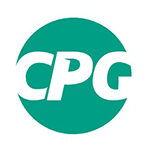
CPG Europe
“It was a great experience for me to work with Mr. Bonnes for more than 7 years. He has sound understanding of business and people paired with strong solution driven mind-set. His way of clear communication and value adding feedback supported me and our team strongly during several international firestop academies we did together. I highly appreciated his Sherpa role during our team building trainings over 2 years. His integrity and his huge courage make him the person you can rely on.”

Zünd Systemtechnik AG
“We sought an internationally experienced and proven sales professional with expertise in the high-end, capital goods sector for our annual re-seller sales meeting. Eighty participants from more than 30 different countries attended and Mr. Bonnes was able to effectively combine sales theory with our specific market in an exciting and compelling way. He expertly facilitated the group work that revealed some valuable key learnings. “

World Resources Forum
“Mr. Bonnes managed to truly engage the WRF team, which is for a topic as “dry” as the Log Frame matrix an amazing achievement. He did so by inviting them to play, involving them, listening to them, and together building new skills. It was great fun, the lessons learned priceless, best investment in enhancing our team capabilities so far. And on top of that he is a real nice guy, I wish he lived closer so we could have some occasional beers together! Highly recommended!”
More detailed achievements, references and testimonials are confidentially available to clients upon request.
Client Telephone Conference (CTC)
If you have any questions or if you would like to arrange a Client Telephone Conference (CTC) to discuss this particular Unique Consulting Service Proposition (UCSP) in more detail, please CLICK HERE.











